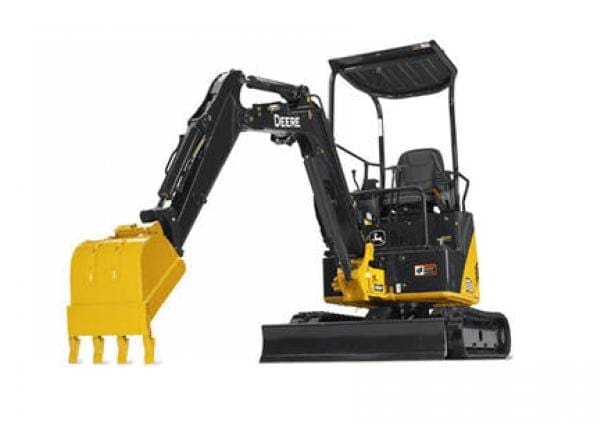How Much Do Mini Excavators Cost in 2025?
In general, a good middle-range price to expect is $30,500 – $76,000. Some will cost quite a bit more, while others will come in under that number. Start here:

Mini Excavator Buyers Guide: Calculate The Cost
Mini excavators are for many different types of construction projects. Whether you need to break some ground for new cement or dig some trenches for a new sprinkler system, this machine could work for you.
And mini excavator prices aren’t bad, either. It only takes a little know-how to get the best deal.
Here’s how much a mini excavator cost, and what you need to know before you buy one.
Comparing Mini Excavator Prices by Company
The brand you go with can play a big role in the cost of the machine. To give you an idea of the price range you should be prepared for, let’s look at a few companies and the mini excavators they sell.
-
Bobcat
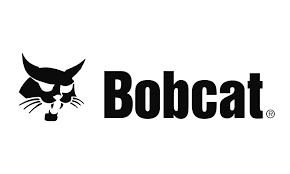 Bobcat offers several of what they call “compact excavators” and they aren’t short on features. They’re specifically designed to help the operator have a great experience.
Bobcat offers several of what they call “compact excavators” and they aren’t short on features. They’re specifically designed to help the operator have a great experience.
Comfort, ride, capacity, and visibility are all priorities at Bobcat. You’ll see that in their designs.
So what do Bobcat compact excavators run for? That will depend on the features, which you can specify if you want.
Used machines sell for $40,500 to even $91,000. Be prepared to spend at least $50,060 on a new compact excavator from Bobcat.
COMPARE-
Kubota
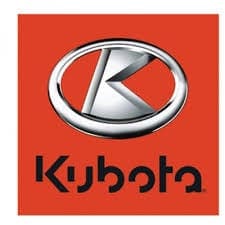 Kubota mini excavators have a large range of prices. You can get your hands on a used one for $12,800, or for $65,200. It all depends on the use of history and features.
Kubota mini excavators have a large range of prices. You can get your hands on a used one for $12,800, or for $65,200. It all depends on the use of history and features.
Kubota puts out several quality machines. They come in different sizes and provide low noise and good fuel efficiency. They’re also designed to be easy to operate, so they’re great if you haven’t operated a mini excavator before.
COMPARE-
Hitachi
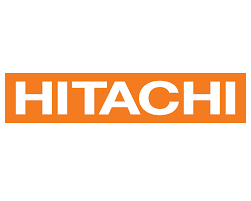 Hitachi offers 23 different models of mini excavators. This wide variety means you have a good chance of finding a Hitachi machine that meets your needs.
Hitachi offers 23 different models of mini excavators. This wide variety means you have a good chance of finding a Hitachi machine that meets your needs.
Safety features are a priority, so Hitachi is a good choice if you really want to make sure operations will go smoothly.
Hitachi machines are less expensive if you’re willing to consider buying used. You can find some under $10,800, while others are listed closer to $45,000.
COMPARE-
John Deere
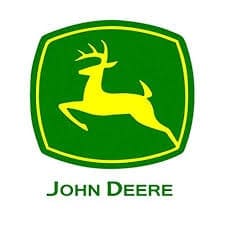 This name shouldn’t sound unfamiliar if you’re used to looking at heavy equipment. John Deere offers several different compact excavators for you to choose from.
This name shouldn’t sound unfamiliar if you’re used to looking at heavy equipment. John Deere offers several different compact excavators for you to choose from.
And, there are many attachments to choose from too. These include blades, brooms, augers, buckets, hammers, and mulchers.
Though this is a big name, you can find some used excavators for as low as around $13,900. Others are in the $31,700 to $40,500 range.
COMPARE-
New Holland
 New Holland released six new mini excavators in 2017. These machines are meant to do more without taking as much of your money.
New Holland released six new mini excavators in 2017. These machines are meant to do more without taking as much of your money.
Are you interested in anti-theft technology? Then this is the place to look.
Expect to pay around $15,200 to $30,200 for a used New Holland mini excavator. You may be able to find some cheaper than that, though, if you’re willing to consider older models.
COMPAREHow to Calculate the Cost of a Mini Excavator
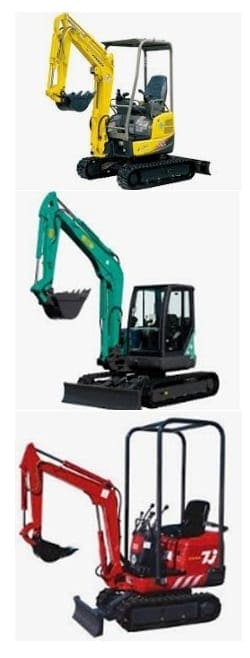
Calculating the cost of a mini excavator involves considering various factors:
- Base Price: Start with the base price of the model you’re interested in. Different models come with varying capacities and features.
- Attachments and Accessories: Mini excavators can have different attachments like buckets, hammers, or augers. Each will have its cost.
- Warranty and Service Packages: Extended warranties or service packages might increase the initial purchase price but can save costs in the long run.
- Financing: If you’re not buying outright, consider interest and finance charges.
- Taxes and Licensing: Depending on your region, sales tax, import duties, and licensing fees might apply.
- Delivery Costs: Depending on the dealer’s location, there might be shipping or delivery fees.
- Operational Costs: This includes fuel, maintenance, and repairs. While not part of the purchase price, it’s essential for total ownership costs.
Always get multiple quotes and consider total ownership costs, not just the purchase price.
Fees to Avoid When Buying a Mini Excavator
There aren’t any fees associated with buying a mini excavator. The only time you’ll need to worry about fees is if you’re renting.
When renting, you’ll have to pay fees based on the rental terms you agreed to. If you don’t like the fee schedule at one location, you’ll have other options elsewhere.
While fees may sound like a pain, they may be a better option than purchasing. Use your specific situation to determine what the best course of action is for you.
Pros and Cons of Renting Versus Purchasing Mini Excavators
Renting and purchasing mini excavators each have their distinct advantages and disadvantages. Let’s explore them:
Renting Mini Excavators
Pros:
- No Large Initial Investment: Renting avoids the substantial upfront cost of purchasing.
- Maintenance and Repairs: Typically, the rental company is responsible for maintenance and repairs, reducing your burden.
- Latest Models: Rental options often include the latest models with advanced technology.
- Flexibility: Renting provides the flexibility to choose different sizes and types of excavators for different projects.
- No Depreciation Costs: You avoid the depreciation costs associated with owning heavy equipment.
- Ideal for Short-Term Use: Renting is cost-effective for short-term or one-off projects.
Cons:
- Higher Cost for Long Term: Over an extended period, renting can be more expensive than owning.
- Availability Issues: The specific model you need may not always be available for rent.
- Less Control Over Equipment: You have less control over the maintenance and condition of the equipment.
- No Equity: Money spent on renting does not contribute to owning an asset.
Purchasing Mini Excavators
Pros:
- Long-Term Investment: Owning an excavator can be more cost-effective in the long run, especially for regular use.
- Asset Ownership: Builds equity and can be considered a business asset.
- Depreciation Benefits: Can be depreciated over its useful life for tax purposes.
- Customization and Familiarity: You can customize the machine to your specific needs and operators can become highly proficient with a specific machine.
- Always Available: You have the equipment available whenever you need it, without worrying about rental availability.
Cons:
- Upfront Cost: Requires a significant initial investment.
- Maintenance and Repair Costs: All maintenance, repair, and operational costs are your responsibility.
- Depreciation: The value of the excavator will depreciate over time.
- Storage: You need to have a place to store the excavator.
- Less Flexibility: You might be stuck with a type of excavator that may not be ideal for all types of jobs.
The decision to rent or purchase a mini excavator depends on your specific circumstances, including the frequency of use, financial considerations, and the nature of your projects. Renting may be more advantageous for short-term or infrequent needs, while purchasing may be more cost-effective for long-term, regular use.
12 Essential Considerations Before Buying a Mini Excavator
Purchasing a mini excavator is a significant investment. To ensure you make the right choice, consider these critical factors:
- Project Requirements
Understand the tasks you’ll use the mini excavator for. Evaluate the depth, reach, and power needed for your projects to choose a model that fits your needs. - Size and Weight
Smaller models are easier to transport and ideal for confined spaces, but may lack the power required for larger tasks. Match the excavator’s size to your project’s demands and terrain. - Attachments and Features
Identify the attachments you’ll need, such as buckets, hammers, or augers. Features like quick couplers, comfortable cabins, joystick controls, and enhanced visibility can improve efficiency and ease of use. - Engine Power and Performance
Look for sufficient horsepower and a robust hydraulic system. Higher performance often comes at a higher cost but is essential for heavy-duty work. - Brand and Dealer Support
Opt for a reputable brand and a dealer with excellent after-sales support, including parts availability and service options. Brand reputation can also impact resale value. - New vs. Used
New machines offer the latest technology and warranties but are more expensive. Used equipment is more affordable but may come with wear and tear or outdated features. - Operating Costs and Maintenance
Consider fuel efficiency and maintenance requirements. Ensure spare parts are readily available to minimize downtime. - Safety Features
Prioritize safety features like Rollover Protective Structures (ROPS), Falling Object Protective Structures (FOPS), emergency shut-offs, and clear cabin visibility. - Price and Financing Options
Compare prices from multiple suppliers and explore financing options if needed. Remember, the lowest price may not always provide the best long-term value. - Regulatory Compliance
Ensure the equipment complies with local emissions and safety regulations to avoid potential legal issues. - Training and Operation
Assess the skill level required to operate the machine and plan for necessary training if needed. - Resale Value
Consider models and brands with high resale value, especially if you may upgrade or sell in the future.
Take the time to research, compare models, and even test rental options to ensure the excavator suits your needs.
COMPARE QUOTESMini Excavator Rental Costs
Renting a mini excavator is a cost-effective option if your needs are short-term. Here’s an overview of typical rental costs:
- Daily Rental: $200–$225 per day.
- Weekly Rental: Several hundred dollars, depending on the model.
- Monthly Rental: Around $1,500–$2,000, with potential discounts for extended rentals.
If your projects are infrequent, renting is ideal. However, for frequent use, purchasing may be more cost-effective in the long run.
Tips for Comparing Prices
Always compare mini excavator prices before purchasing or renting. Key factors to consider include:
- Brand Reputation: Established brands often provide better support and resale value.
- Attachments: Note what accessories are included and their cost.
- Condition: For used equipment, check the machine’s history and condition.
- Diesel Engines and Tracks: Most models run on diesel and feature heavy-duty tracks, designed for rugged environments.
By understanding these factors, you can make an informed decision and get the best value for your investment.
COMPARE QUOTESAlways Compare Mini Excavator Prices
You should always compare when looking at mini excavator prices. Compare every specification that comes with each excavator.
Prices differ depending on many factors. Make sure you understand them if you want to get the best deal.
Consider brand names, any attachments that are included, how long the excavator has been in use, and if it’s better to buy new. You may want to consider renting, too.
Whichever option is best for you, go forward with it. You’ll love having an excavator all your own!
Most models run with a diesel engine and are mounted on a set of tracks. The tracks are rugged, heavy-duty models to make the machine practical in as many environments as possible. These units are seen in a variety of settings, including home and commercial construction, road building, land clearing, forestry and more. The price of a mini excavator is often related to the power and size of the machine.
